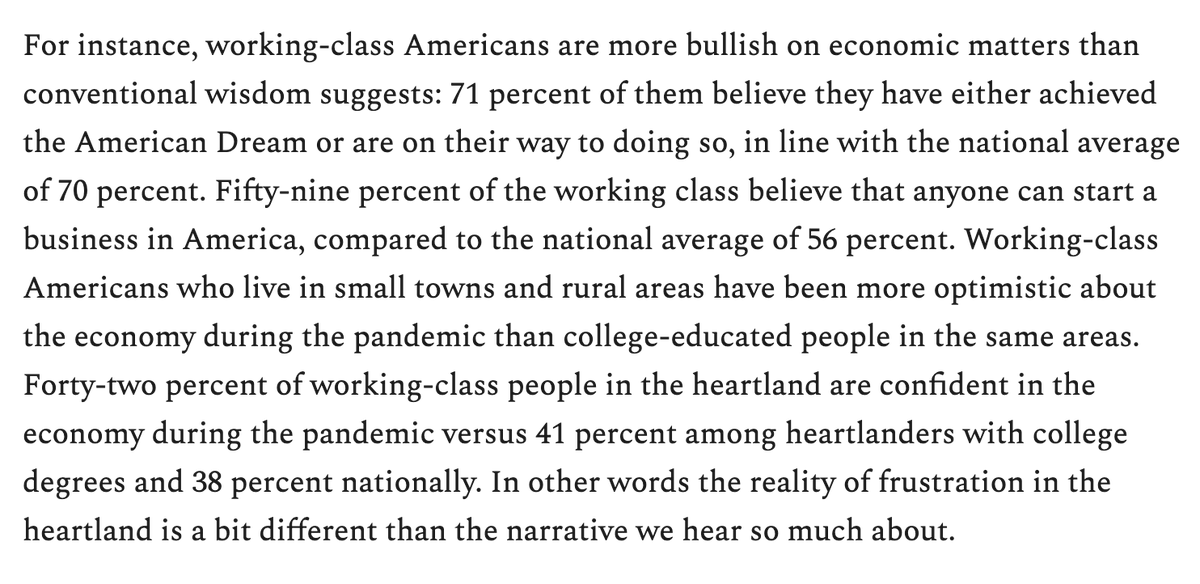
I would mildly suggest that this @JZmirak piece is missing an acknowledgment that a key temptation losers face is the temptation to tell themselves, "actually, we didn't really lose."
stream.org/why-we-refuse-…
stream.org/why-we-refuse-…
I would argue that conservatism in the United States is deeply afflicted by this temptation, with the voter-fraud fixation only the starkest case.
A conservatism of winners, of the kind @JZmirak calls for, would look at the fact that the right keeps stalling out at 46, 47, 48 percent support and say, "we need to get up to 52 or 53 or 54 percent so that we actually do the things that seem so desperately needful."
A conservatism of losers, on the other hand, would tell itself that its minority status isn't real and/or is the best that it can hope for given that the Democrats are cheaters.
A conservatism of winners would look at Trump's substantial minority as a foundation and try to build from there. A conservatism of losers would insist that Bill Barr and Fed Society judges and Fox News are all leagued against them and only a remnant can be trusted.
A conservatism of winners would live the in the reality where lots of otherwise-persuadable voters just didn't want to vote for Trump. A conservative of losers would live in a dream palace where he really won a landslide.
Anyway, just a thought. I think @JZmirak's moral analysis accurately describes a certain kind of temptation for conservatives, but it misses the crucial temptation facing conservatives like, well, him.
• • •
Missing some Tweet in this thread? You can try to
force a refresh



